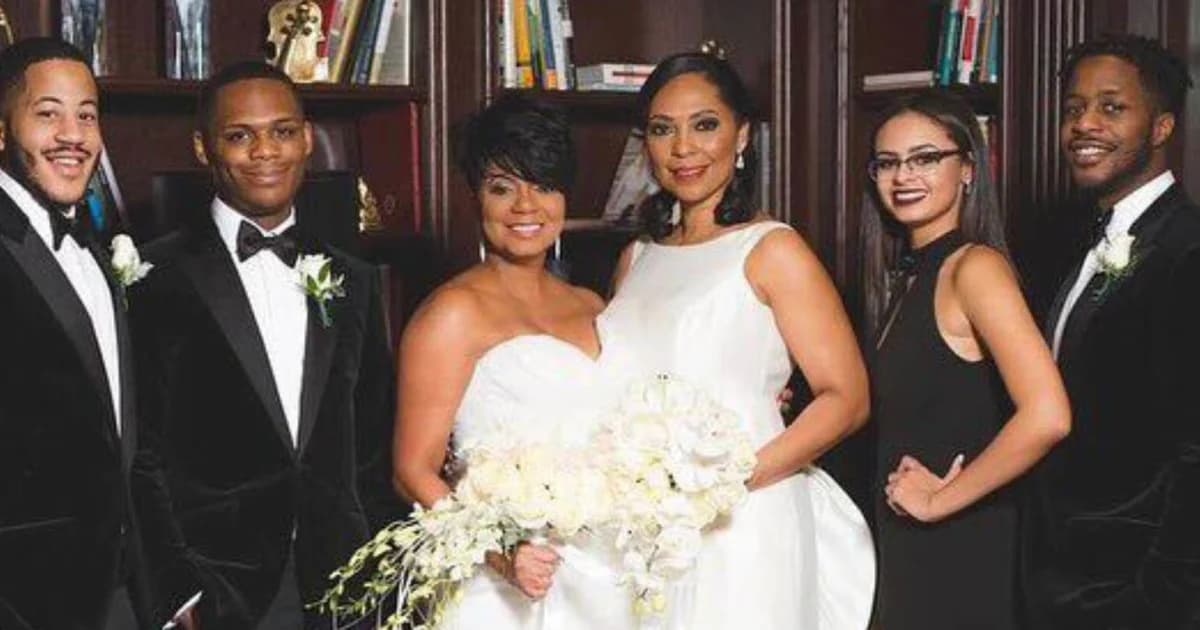We're loading the full news article for you. This includes the article content, images, author information, and related articles.
An American LGBTQ advocate's celebrated marriage to her female best friend highlights the stark contrast between evolving social norms in the West and the legal and cultural barriers facing same-sex couples in Kenya, where such unions remain constitutionally banned and socially condemned.

In a story that has captured significant international attention online, Sherron Sloss-Lewis, an American mother and LGBTQ advocate, married her best friend, Patrycia Lynn, in December 2017 following two divorces from men. According to reports by multiple US media outlets of a TODAY.com interview, Sloss-Lewis decided in 2014 to be open to finding love, regardless of gender. This personal journey led her to connect with Lynn through the dating website Match.com.
Their relationship began long-distance, with Sloss-Lewis residing in Nashville, Tennessee, and Lynn in Maryland. After a year, Sloss-Lewis and her daughter relocated to Maryland to live with Lynn. They married two years later at a resort in Middleburg, Virginia, in a ceremony where their sons from previous marriages walked them down the aisle, symbolizing the union of their two families. Following her marriage, Sloss-Lewis began sharing her life online and has since become a prominent influencer, focusing on lifestyle, fashion, and her personal journey.
Sloss-Lewis, who grew up in the church, reportedly consulted her minister to reconcile her faith with her relationship with a woman before proceeding. Her story highlights a personal and societal evolution in a country where same-sex marriage is legally recognized nationwide. The state where she currently resides, Maryland, legalized same-sex marriage effective January 1, 2013, following a voter referendum.
While Sloss-Lewis's story is celebrated in many parts of the world, it stands in sharp relief to the legal and social reality in Kenya. The Constitution of Kenya, under Article 45(2), explicitly defines marriage as a union between a man and a woman. Furthermore, sections 162 and 165 of the Penal Code, remnants of British colonial-era legislation, criminalize same-sex intimate acts, with penalties of up to 14 years in prison.
This legal framework reflects a deeply conservative societal view. Political and religious leaders have consistently condemned homosexuality, reinforcing widespread public opposition to LGBTQ+ rights. Attempts by activists to have the colonial-era laws decriminalized were rejected by the High Court in a landmark 2019 ruling, which cited the constitutional definition of marriage as a key reason. Homa Bay Town Member of Parliament, Peter Kaluma, has been a vocal opponent, vowing in 2023 to introduce legislation to further criminalize and increase penalties for same-sex relations.
Despite the challenging environment, Kenya's LGBTQ+ community and its allies continue to advocate for their fundamental rights. A significant victory was achieved in February 2023, when the Supreme Court of Kenya upheld a lower court's decision affirming the right of LGBTQ+ individuals to freedom of association. The court ruled that the government's refusal to register the National Gay and Lesbian Human Rights Commission (NGLHRC) as a non-governmental organization was discriminatory and unconstitutional. This ruling, while not affecting the legal status of same-sex marriage, was a crucial acknowledgment of the community's right to organize and advocate for their rights.
Organizations like NGLHRC and the Gay and Lesbian Coalition of Kenya (GALCK+) are at the forefront of this movement, providing legal aid, documenting human rights violations, and working to change public perception. Their work underscores the vast gulf between the lived experience of individuals like Sherron Sloss-Lewis in the United States and that of LGBTQ+ Kenyans. While one can publicly celebrate her marriage and build a career around her identity, the other faces legal persecution and a daily struggle for basic recognition and safety. Sloss-Lewis's viral story, therefore, serves as a powerful global benchmark against which the ongoing fight for equality in Kenya and much of East Africa can be measured.
Keep the conversation in one place—threads here stay linked to the story and in the forums.
Sign in to start a discussion
Start a conversation about this story and keep it linked here.
Other hot threads
E-sports and Gaming Community in Kenya
Active 9 months ago
The Role of Technology in Modern Agriculture (AgriTech)
Active 9 months ago
Popular Recreational Activities Across Counties
Active 9 months ago
Investing in Youth Sports Development Programs
Active 9 months ago